When you think of Wembley Stadium nowadays, you most likely think of the arch, Euro 2020 and the Lionesses. The new stadium has become an iconic setting for some of the biggest matches in the modern game.
But we must not forget what came before – the old Wembley Stadium which was, according to many, the home of football.
Even Pelé once said: “Wembley is the cathedral of football. It is the capital of football and it is the heart of football.”
The original Wembley opened more than 100 years ago, and so it saw some incredible matches in its time. Here’s our rundown of the five best matches played at the historic stadium.
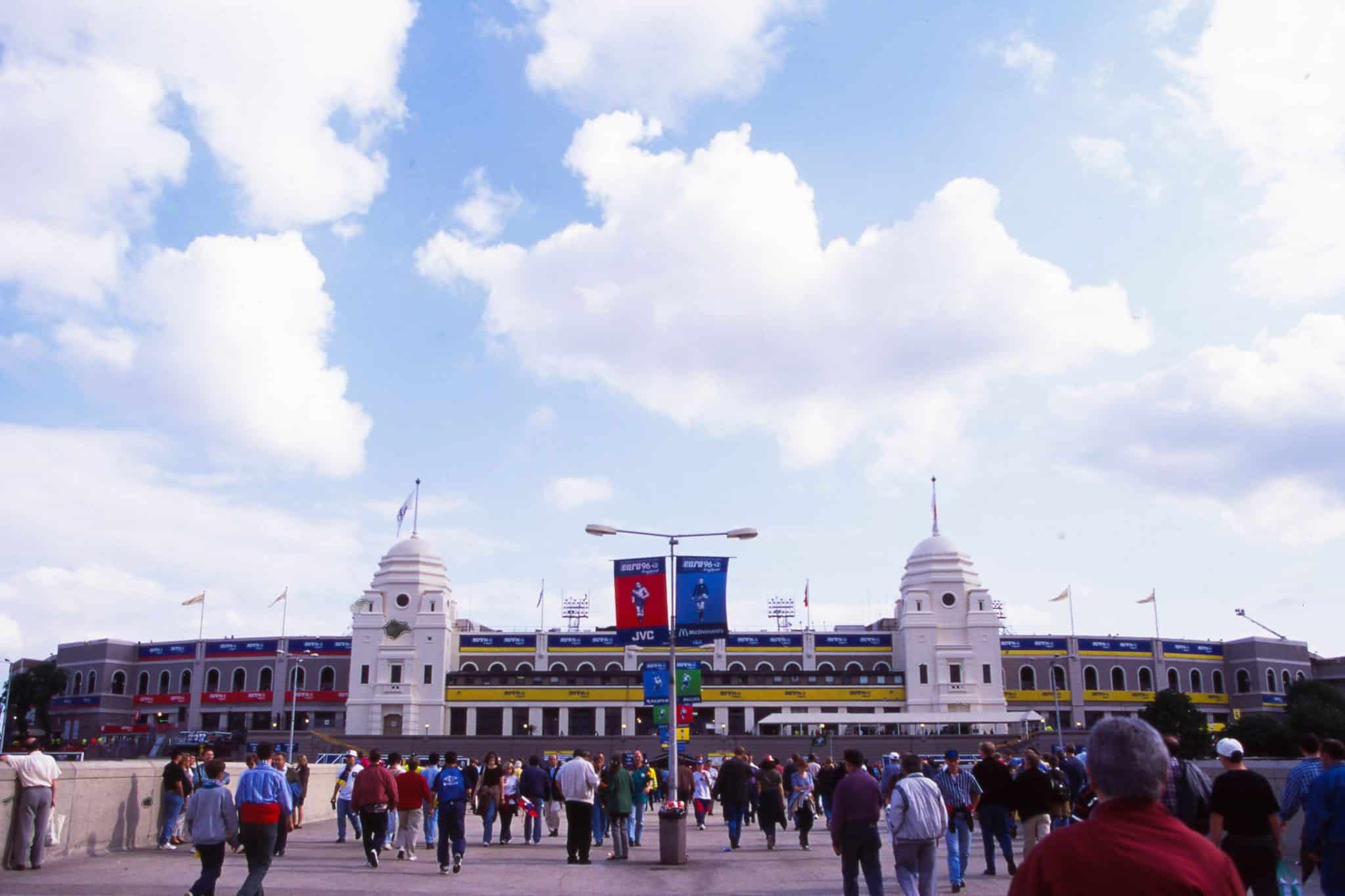
1923 FA Cup Final
Where else can we start but with the stadium’s inaugural match, the 1923 FA Cup Final between Bolton Wanderers and West Ham United, on 28 April?
With the stadium only being ready four days before the final took place, the event was fraught with logistical problems.
The match was not ticketed, with fans simply able to pay for entry on the gates. But the FA massively underestimated the number of people who would attend – the stadium had a capacity of 127,000, but it is estimated that there were between 240,000 and 300,000 spectators in attendance that day.
Unsurprisingly, the crowds spilled out onto the pitch. However, Police Constable George Scorey, riding a white horse named Billy, was able to control the crowds and gradually get everyone back into the stands.
For this reason, the 1923 FA Cup Final is known as the “White Horse Final”, and the footbridge outside the new Wembley was named the White Horse Bridge.
The match kicked off only 45 minutes late, and Bolton won 2-0, with inside forward David Jack claiming the honour of scoring the very first goal at Wembley Stadium.
1953 FA Cup Final
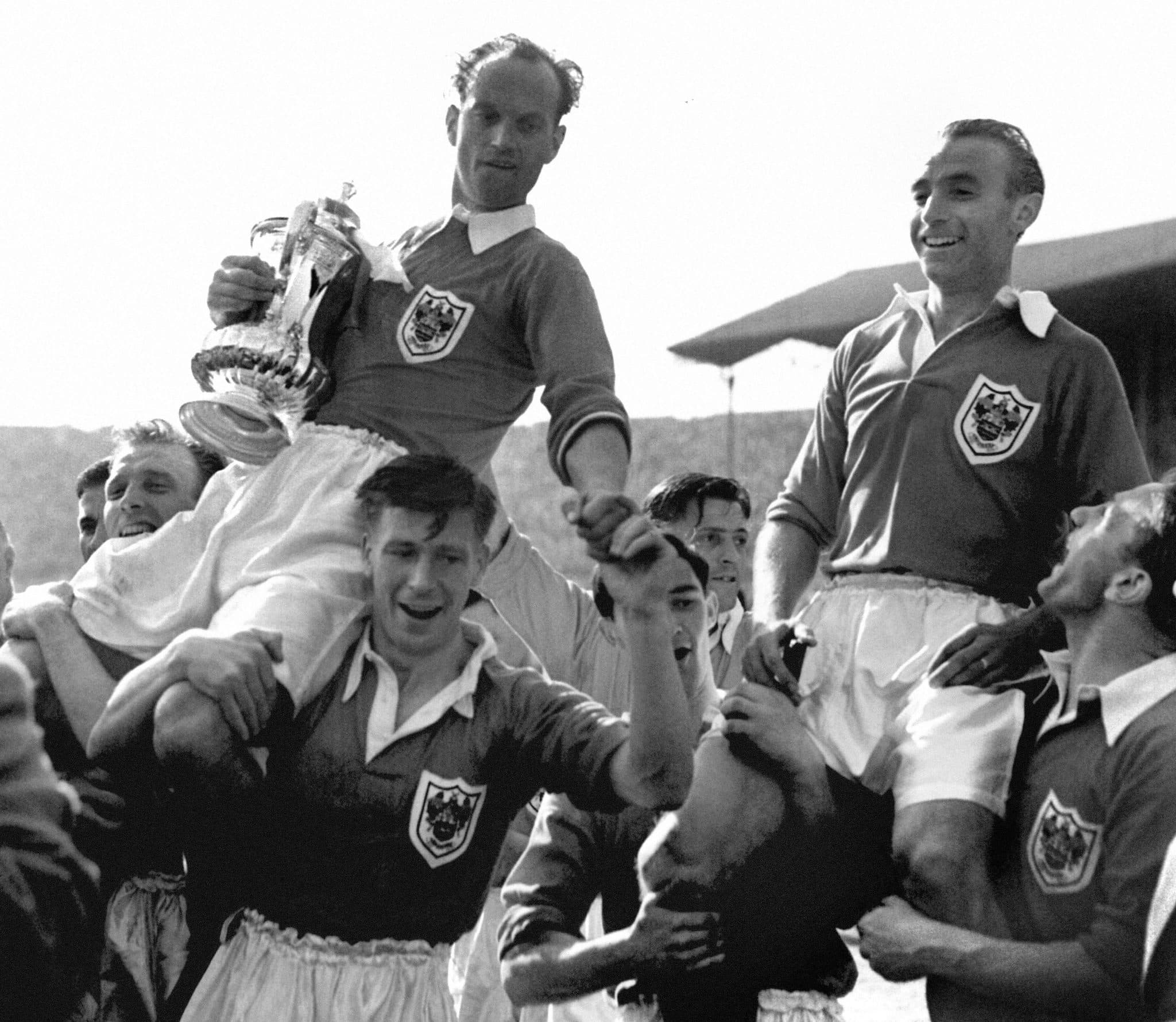
Known as the “Matthews final”, the 1953 FA Cup Final was Stanley Matthews’ last attempt at winning the FA Cup, having lost in 1948 and 1951 to Manchester United and Newcastle United respectively.
His side, Blackpool, faced off against Bolton Wanderers. The Seasiders found themselves 3-1 down midway through the second half, but fought back to win 4-3 thanks to an all-time great performance from Matthews and a hattrick from Stan Mortensen – the only FA Cup Final hattrick ever scored at the old Wembley
100,000 were at Wembley that day, but many more were watching at home. The final is considered the first major TV audience for a sporting event, as many people had bought or rented TVs for the upcoming coronation of Queen Elizabeth II.
1966 World Cup final
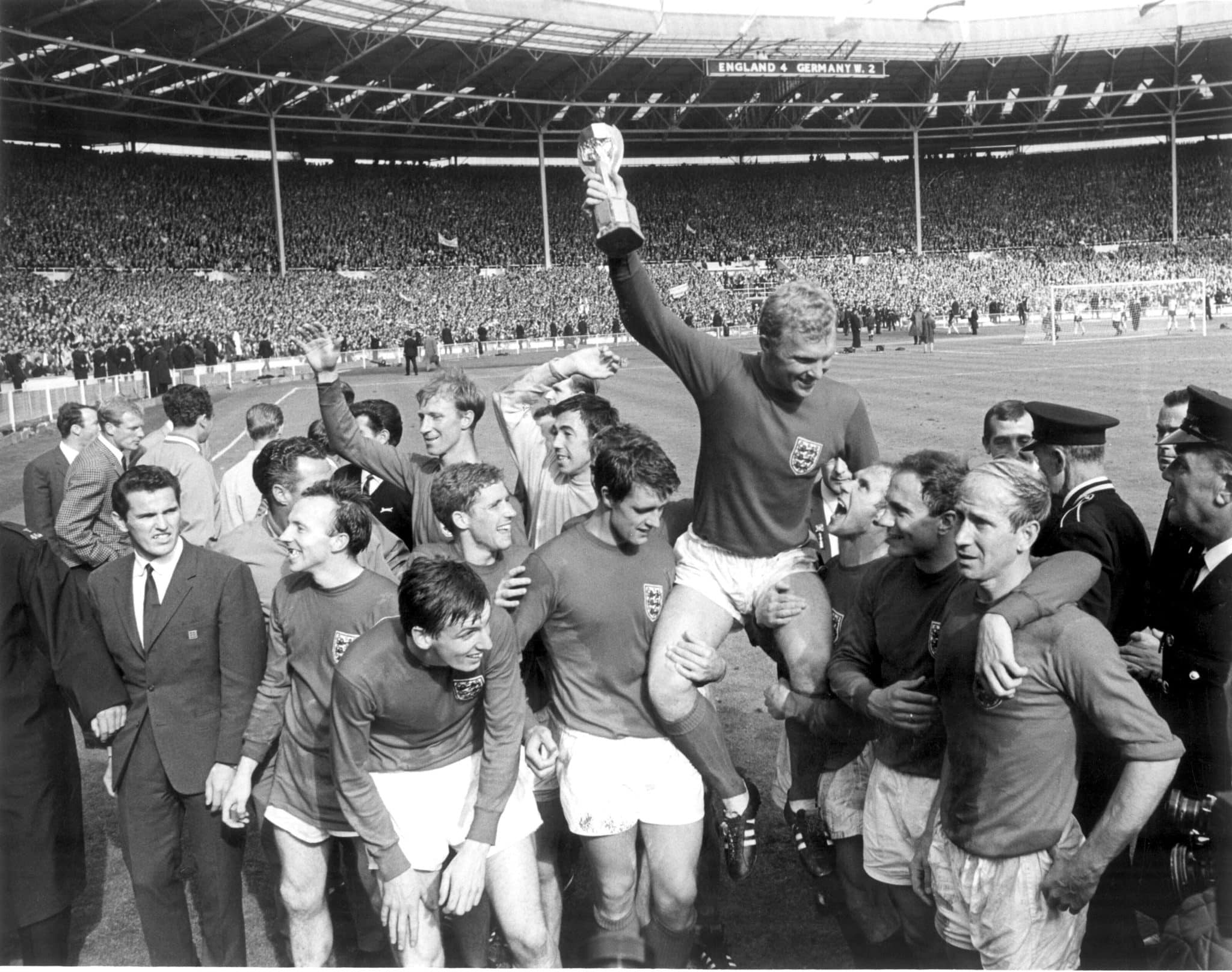
What more is there to say about the 1966 World Cup final? Undoubtedly the most iconic match ever held at Wembley, it is also probably the most well-known match in English football history.
England, of course, beat Germany 4-2 after extra time, with Geoff Hurst scoring a hattrick – the only hattrick ever to be scored in a World Cup final until Kylian Mbappé scored one in the 2022 final against Argentina.
Hurst’s second, which came in the 101st minute, is notable for its controversy – it was not entirely clear whether the ball had crossed the line.
32.3 million people watch the match on TV, the most-watched television event in the history of the United Kingdom. Most of them will have heard what may also be the most iconic line in sports commentary ever – the BBC’s Kenneth Wolstenholme saying “Some people are on the pitch! They think it’s all over,” followed by “It is now!” once Geoff Hurst scored the fourth to seal the win.
Euro 1996 final
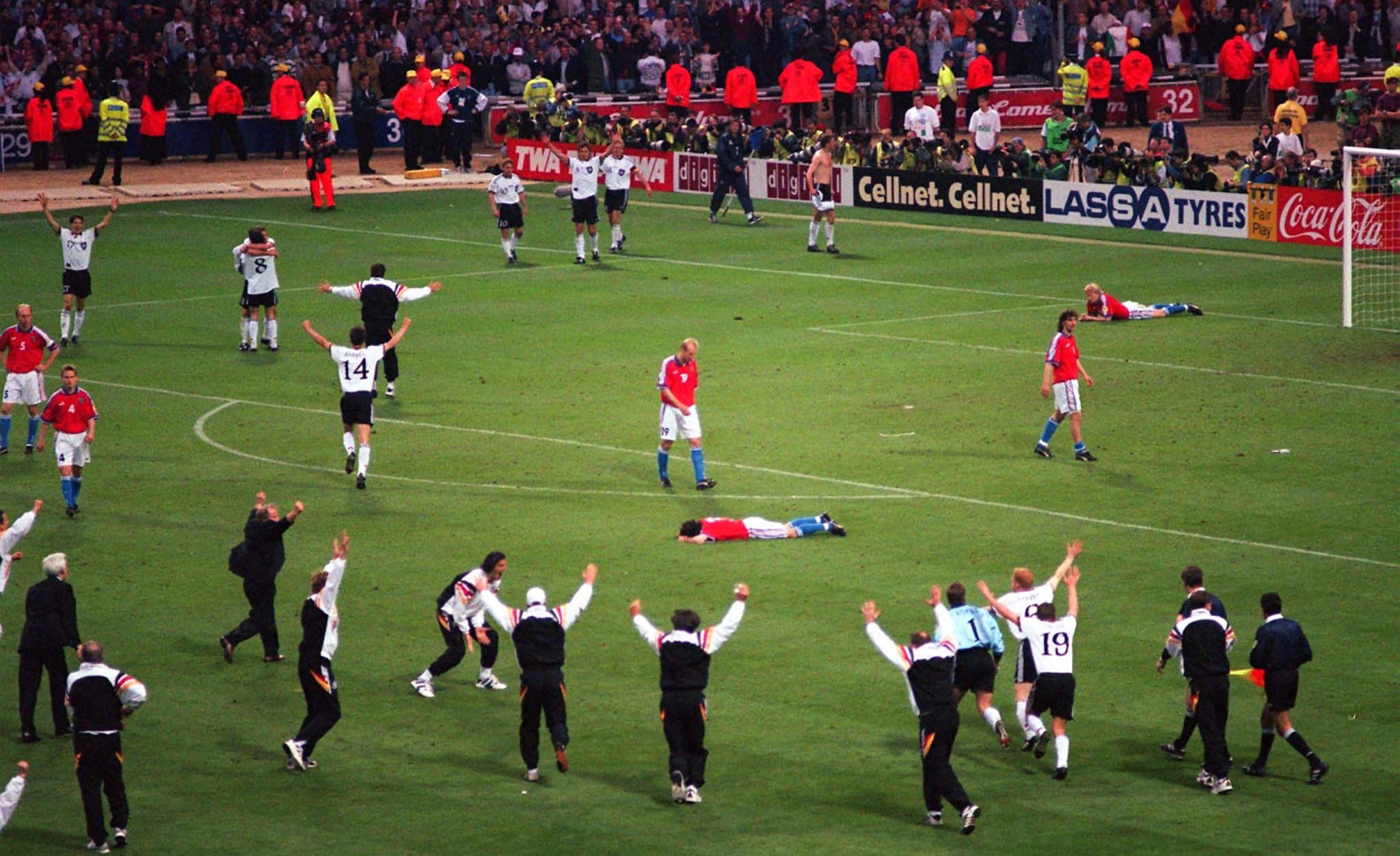
The only game on this list not to feature an English side, the Euro 1996 final saw Germany beat the Czech Republic 2-1 after extra time. The match is notable for it being the very first time a major international match was decided by a golden goal.
It was a Czech Republic side that were in the midst of a golden generation, with the likes of Pavel Nedved, Karel Poborsky, and Patrik Berger lining up in the final. The latter gave his side the lead in the 59th minute with a penalty, but Germany’s Oliver Bierhoff equalised with a header in the 73rd minute.
The match went to extra time, and in the 95th, Bierhoff turned and hit a shot which was deflected off Michal Hornak and went through the hands of goalkeeper Petr Kouba. Germany had won the game and claimed their third ever European Championship title.
Arriving back in Germany, the team celebrated their win in style, singing “Three Lions”.
Last game at Old Wembley
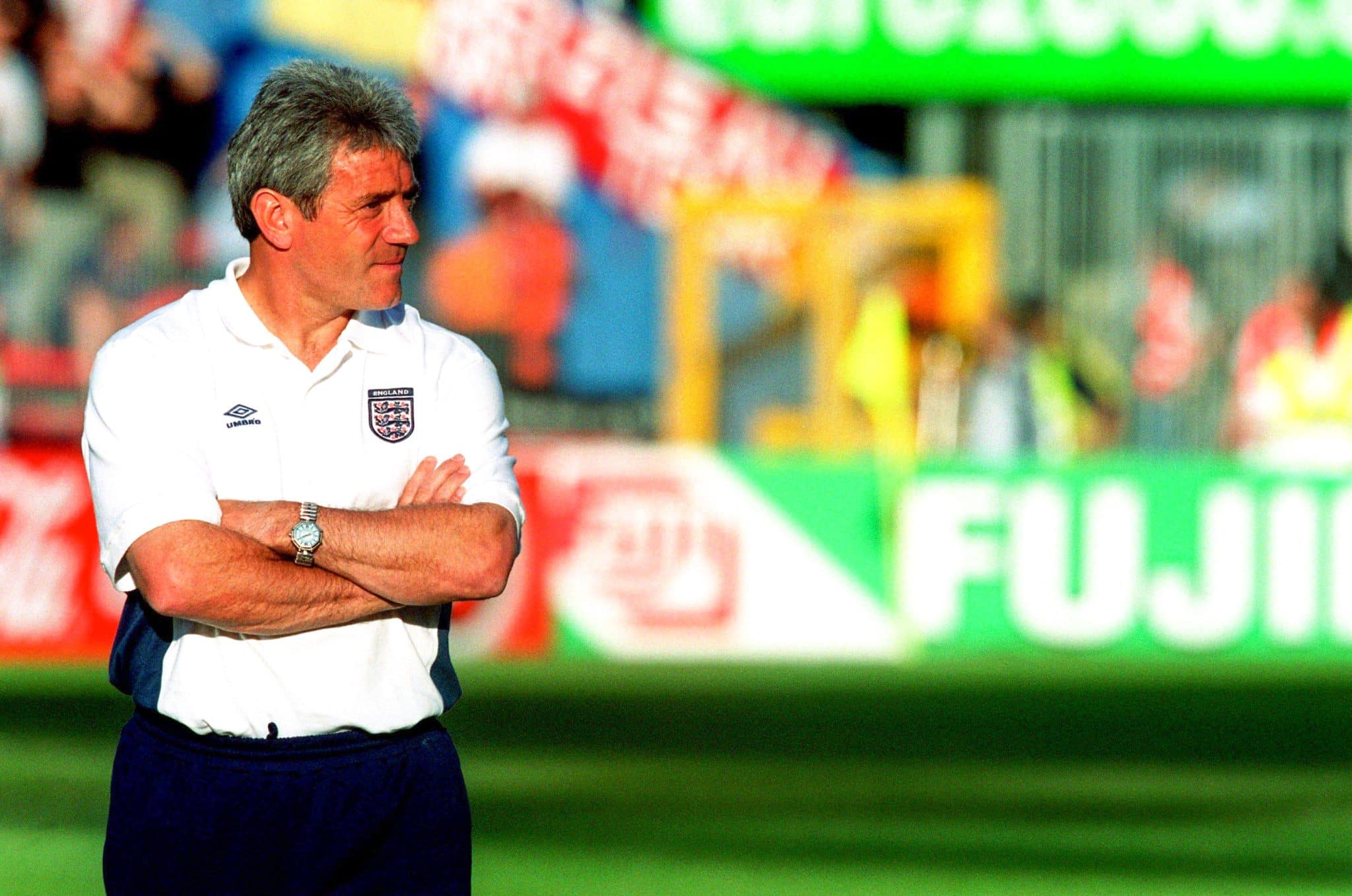
The last game at Wembley, unfortunately for England, was a bit of a whimper. A 1-0 loss to Germany in a 2002 World Cup qualifying match on 7 October 2000, Dietmar Hamann scored the last goal ever at the Old Wembley with a free kick from 30 yards in the 14th minute.
Five years later in May 2005, a public poll to name a recently-built footbridge at the new Wembley saw the name “Dietmar Hamann Bridge” win the most votes, but the bridge was instead named “White Horse Bridge” after the aforementioned Billy.
England manager Kevin Keegan resigned immediately after the game, reportedly after hearing boos from the Wembley crowd that were so loud they drowned out a fireworks show put on by the FA to say goodbye to the stadium. Inside a toilet cubicle, it was said that he told FA chief David Davies that he would be leaving, saying “I’m going. They don’t want me.”
Hamann later said in an interview that he regretted Keegan’s resignation as he had been a Hamburger SV fan during Keegan’s stint at the club in the 70s.
Keegan’s successor as England manager was Sven-Göran Eriksson, who managed the national team to a famous 5-1 win in Munich in the return fixture.
